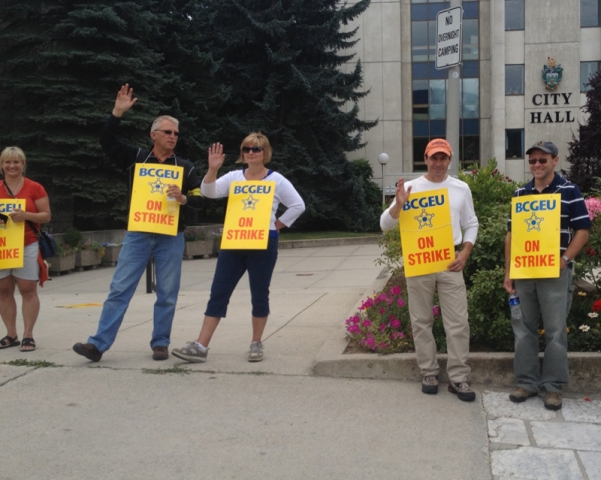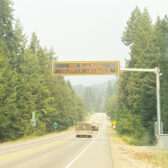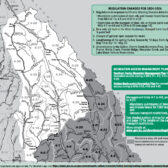Nelson public servants join co-workers throughout province in one-day strike
Public workers in Nelson joined more than 27,000 of their closet friends in a one-day walkout Wednesday in an escalating dispute between the province and its unionized workers.
The strike, involving roughly 25,000 members of the B.C. Government and Service Employees Union and about 2,000 more from Professional Employees Association (PEA) and Canadian Office & Professional Employees Union (COPE) Local 378, is the first full-scale walkout in more than 20 years.
The last strike by the BCGEU happened in 1988.
“We are looking for a fair and reasonable agreement, but the government is not listening,” BCGEU President Darryl Walker said on the union’s website.
“We have no choice but to send a clear message to government: there can be no more falling behind for all government workers. We’ve not taken the decision to strike lightly.
“Our last strike in direct government was more than 20 years ago.”
Workers in Nelson had picket lines set up at the Government Liquor Store, in front of the big white building workers share with the City Hall and in front of the provincial building on Victoria and Stanley Streets.
Essential service levels are guaranteed so the health, safety and welfare of British Columbians will not be impacted by the job action.
The one-day strike is the latest round of posturing by the BCGEU.
During the summer, the BCGEU organized three rotating strikes across the province.
“The government didn’t listen. That’s why we’re on the picket line again,” Walker said.
Ironically, today BC Premier Christy Clark shuffled her cabinet in light of a handful of recent departures.
Replacing Finance Minister Kevin Falcon, who recently decided not to run in the next provincial election, is former health minister Mike de Jong.
The province has previously offered a two-per-cent increase starting in July 1, 2012, and a 1.5 per cent increase on July 1 of next year.
The union responded by asking for 3.5 per cent starting April 1 — three months earlier than the government offer followed by a cost-of-living increase in the second year.



























